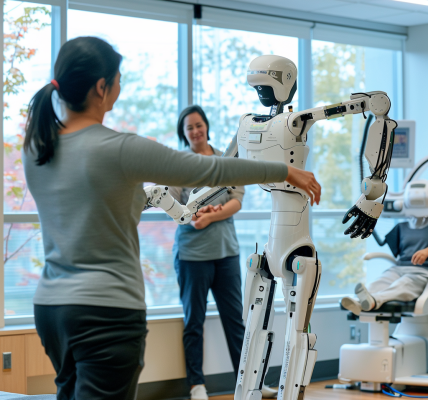Exploring the Stepped-Care Model: The Integration of AI in Behavioral Health
In the evolving landscape of mental health care, the Stepped-Care Model is emerging as a pivotal framework that prioritizes patient needs through a tiered approach. This model facilitates a gradual increase in the intensity of care, ensuring that individuals receive appropriate interventions based on the severity of their symptoms.
At the foundation of the Stepped-Care Model are low-intensity interventions designed for individuals experiencing mild mental health issues. These interventions can include self-help resources and AI-driven chatbots, which provide immediate support and guidance. As patients’ symptoms escalate, they can transition to more intensive services, such as in-person therapy, medication management, or specialized treatment options.
Artificial Intelligence (AI) plays a crucial role in the lower tiers of the Stepped-Care Model. It is particularly effective in addressing common mental health challenges, including anxiety, depression, and stress. AI tools like Woebot and Wysa are already making strides in this area by offering accessible support to individuals who may be hesitant to seek professional help. Research indicates that these AI-driven solutions have successfully reduced symptoms of anxiety and depression across diverse populations, including students, shift workers, and residents of rural areas.
The integration of AI into the mental health care system is not merely a trend; it represents a significant shift in how care is delivered. In previous discussions, we explored the role of AI in mental health, comparing its applications in medical settings versus talk therapy. We also examined how therapists can adapt to the increasing presence of virtual care companies while maintaining their critical role in patient care. This article will delve deeper into how AI aligns with the Stepped-Care Model, emphasizing the importance of preparing for an AI-enhanced future to remain competitive and improve patient outcomes.
The Evidence Supporting AI in the Stepped-Care Model
The demand for effective mental health interventions is growing globally, fueled by an increasing awareness and destigmatization of mental health issues, especially among younger generations. As the need for scalable solutions becomes more evident, the importance of evidence-based practices in mental health care cannot be overstated.
A selection of studies highlights the potential of AI within the Stepped-Care Model:
- Fitzpatrick et al. (2017): This research demonstrated that the Woebot chatbot effectively reduced symptoms of depression and anxiety in college students within just two weeks of use.
- Fulmer et al. (2018): The study on Tess, another AI chatbot, revealed its capability to alleviate stress and anxiety levels among users.
These studies underscore the effectiveness of AI tools in delivering low-intensity interventions, emphasizing their role in improving mental health outcomes. As the body of evidence continues to grow, mental health professionals are encouraged to stay informed about the latest developments in AI research. Conducting searches on platforms like Google Scholar using keywords related to AI and stepped-care can yield valuable insights into ongoing studies and emerging technologies in the field.
For clinicians and mental health practitioners, understanding the integration of AI into the Stepped-Care Model is essential. It not only enhances the quality of care provided to patients but also ensures that professionals remain relevant in an ever-evolving landscape. As AI tools become more sophisticated, they offer the potential to bridge gaps in mental health care accessibility, making it easier for individuals to receive timely support.
As we look to the future, the Stepped-Care Model, combined with AI innovations, holds promise for transforming the delivery of mental health services. By embracing these advancements, healthcare providers can enhance patient experiences, improve outcomes, and contribute to a more comprehensive approach to mental health care.
In conclusion, the integration of AI within the Stepped-Care Model represents a significant advancement in mental health treatment. By leveraging technology, mental health professionals can provide tailored interventions that meet the unique needs of each patient, ultimately fostering a more supportive and effective care environment.





